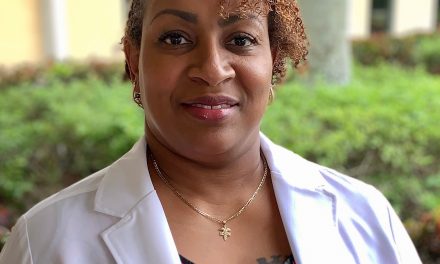 If your patients are looking for an exceptional addiction and dual diagnosis treatment center that offers affordable, high-quality treatment in a welcoming South Florida setting, look no further than The Recovery Place which offers comfortable condo-style living close to the beach in Fort Lauderdale.
If your patients are looking for an exceptional addiction and dual diagnosis treatment center that offers affordable, high-quality treatment in a welcoming South Florida setting, look no further than The Recovery Place which offers comfortable condo-style living close to the beach in Fort Lauderdale. As part of the Elements Behavioral Health family of treatment centers, this type of program is offered in other parts of the country as well.
“We work closely with the admissions teams throughout our organization and can assist with making an appropriate referral,” says Diane Funston, executive director of The Recovery Place.
Funston calls its program unique for several reasons:
Experienced Treatment Team
Its clinical team includes a full-time psychiatrist, a full-time advanced psychiatric nurse practitioner, a full-time medical nurse practitioner, master’s level therapists, case managers and 24-hour nursing staff.
“From our client care coordinators to our executive director, we share a passion for helping people,” says Funston. “Each one of us feels a sense of ownership of our treatment center and approaches every client who walks through our door as a cherished family member.”
Affordable Addiction Treatment
The Recovery Place is in-network with most major insurance plans, making it an affordable, highly effective treatment option.
Home-Like Treatment Facility
The Recovery Place is located in Fort Lauderdale, close to the beach and South Florida’s many sites and attractions.
“You won’t need to travel miles to and from treatment; our comfortable, home-like client residences are just steps away from the treatment facility, eliminating stressful commute time,” says Funston. “In our condo-style living arrangement, you’ll acquire or regain practical life skills such as cooking your own meals, completing chores, and being on time for meetings and obligations. You’ll also participate in gym visits, supervised outings and other activities.”
True Dual Diagnosis Treatment
Funston adds that its experienced team of counselors, physicians and nurses provides integrated, comprehensive treatment for those with substance abuse and co-occurring mental health disorders. Beginning with a thorough individual evaluation, they determine whether any underlying problems, such as anxiety or depression, are complicating your recovery and then structure a program specific to your unique battle with addiction and mental health.
A Healthy Recovery Lifestyle
“We address every aspect of life in recovery,” says Funston. “In addition to traditional individual and group therapy, we provide opportunities to enhance recovery through yoga, music therapy, meditation and other approaches.”
Whereas many facilities provide treatment Monday through Friday, at The Recovery Place treatment takes place seven days a week to maximize every moment of your time here. Additionally, its interdisciplinary treatment team discusses your progress at least once a week to determine if any changes should be implemented in your treatment plan, from medications and activities to alternative interventions and therapeutic approaches.
Specialized Programs
According to Funston, some treatment facilities profess to offer Christian treatment, but it is often a track, not a complete program. The Recovery Place is unique in that it offers a comprehensive, stand-alone Christian program. They also have a specialized program to treat young adults at high risk of relapse.
Complete Continuum of Care
The Recovery Place offers a complete continuum of care, including residential treatment and an intensive outpatient program. Funston says they give you the tools for sustainable recovery in the real world.
Long-Term Focus
“We support each client’s long-term recovery with a complimentary six-week aftercare program that is available to all who have completed any one of our levels of care,” says Funston.
In addition, it offers the Javelin Program, a groundbreaking 12-month continuing care plan based on principles that have been proven to promote long-term recovery. The Javelin program takes a long-term approach, and is designed to address an individual’s addiction at different stages and through various life transitions.
“We also have a large, close-knit network of former clients who stay actively involved and connected to us through our alumni program,” says Funston.
Fully Accredited
Accredited by The Joint Commission, The Recovery Place meets the highest standards for quality addiction treatment and client care.
“We strive for more than just meeting the standards; we exceed them,” stresses Funston.
It is also a member of the National Association of Addiction Treatment Providers.
On average, 100 people per month are admitted to The Recovery Place which treats all types of addiction. The most prevalent drugs of choice are alcohol and opiates, notes Funston. Other drugs of choice commonly seen are methamphetamine, benzodiazepines such as Xanax, and other prescription drugs.
“More recently we have seen an increase in synthetic drug use, including the drug Flakka, which is especially prevalent in South Florida,” she says. “This potent stimulant is inexpensive to buy and is known to cause users’ bizarre and high risk behaviors.”
The main struggle for people living with addiction is the ability to maintain long term sobriety. Often clients suffer from trauma and shame, which interferes with ability to cope and remain abstinent.
“Conquering an addiction requires a commitment to addictions recovery and begins with getting sober and then transitioning back to a healthy, sober lifestyle,” explains Funston. “Getting proper professional help, setting goals for conquering addiction, and finding a support network are all important steps in living substance-free.”
Some of the signs that a person does not have their addictions under control may include physical health issues, poor work or study performance, problems with family and other personal relationships, legal and/or financial problems. The person often does not appear to have control over the escalating behaviors and substance use and may try to hide or minimize behavior after family or friends mention their concerns. Some persons may experience depression, anxiety, or low self-esteem.
“Someone should come to the Recovery Place when traditional outpatient has not resulted in successful recovery, after a relapse or multiple relapses, when he or she needs a more intensive program that removes him or her from an environment that is counterproductive to successful recovery,” says Funston.



























